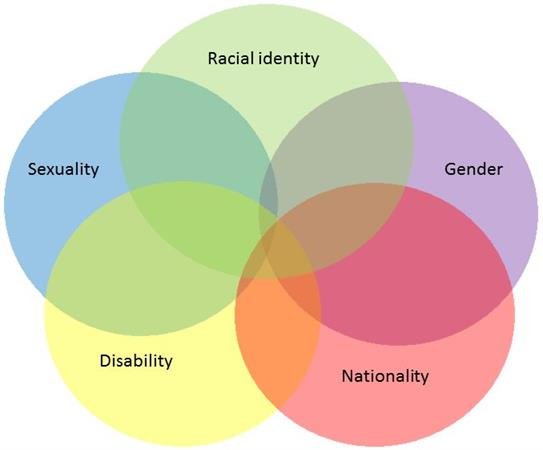October: the Month for Intersectionality
October marks many different awareness days. For more than 30 years, October has been the time of year to raise awareness about historical events and celebrate the achievements of Black people and the African diaspora as part of Black History Month. Additionally, in 1990, the United Nations designated 1 October as the day to observe International Day for Older Persons to “increase global knowledge and awareness of the Universal Declaration of Human Rights”, particularly for older persons. Not only that, 10 October was designated not only World Homelessness Day, but also World Mental Health Day.
Each of these observances make October an especially important time to reflect on how social categorisations such as social class, race, ethnicity, age, and disability can overlap and create very distinct negative experiences of the Housing Crisis.
At Advice for Renters, we work closely with those who are older in age, as well as those from racially minoritised backgrounds. Around 8% of our clients seeking out housing advice are over 66. Almost 75% who reach out for our housing support are from non-white backgrounds, with around half our clients being from a Black African or Caribbean background. Around 20% of our clients deal with mental health challenges.
But what does any of this have to do with housing?
Each of these factors can be considered a part of a web, creating a unique experience of the Housing Crisis for each individual, depending on their place within this complex web.
Those who are homeless are more likely than the general public to be diagnosed with mental health conditions, including depression and anxiety. These are often associated with high rates of poverty, as precarity can lead to deteriorating mental health or compound any existing health issues, especially if there is existing social stigma surrounding both poverty and mental health. It can lead to feelings of low self-worth and avoidance of seeking out support services like ours.
What about barriers to housing equity for older people? There are many things we might not consider if we aren’t a minoritised older person.
More and more older people are now dependent on rented accommodation. The number of renters over the age of 65 is set to hit 1 million by 2033. This is because of a multitude of reasons, including soaring mortgages which is making homeownership impossible.
Different cultures have different living arrangements - while some cultures may have traditionally seen multiple generations of a family live under the same roof, times are now changing. Older people are now increasingly living alone, either out of choice or necessity. Many relatives are now unable to care for their loved ones due to work commitments or because they live too far away.
Homes might not be the right size for them, or even the right fit. Accessibility is a major issue, as many older people require adaptations to be made to their homes. This can include widening doorways to allow for wheelchair use, or installing rails to staircases for safety reasons. However, these adaptations can be expensive and many landlords aren’t willing to shell out money for them.
This might mean that older people may feel required to move out of their homes and move away from their support networks.
Minoritised older people may also face discrimination when trying to find a new home - they can experience not only racial discrimination, but also age, as many landlords are aware that older people are more likely to rely on their state pensions and housing benefits.
Racial disparities in renting aren’t news to anyone who has been paying attention. But being a person who stands in between all these other intersections can create a convoluted experience of discrimination that can make housing equity seem impossible to achieve.
So what can be done?
Many organisations, regardless of the services they provide and the audiences they are trying to reach, have advocated for a strengthening of tenants’ rights across the board. Ending Section 21 no-fault evictions will mean that no-one, despite any aspect of their identity, can be pushed into homelessness and negatively contribute to any further issues they are facing. Supporting the Renters’ Reform Bill and pressuring Parliament to add further protections to renters’ rights is the only way.
But until then, organisations such as ours and Generation Rent will continue to educate renters on their rights.
Our Legal Housing Advisor, Karen O’Sullivan, will be taking part in a webinar for Renters’ Rights Awareness Week (RRAW) on Tuesday 17th October (6-7:30pm) about the Responsibilities of Landlords and Letting Agents. This session will provide an overview of what tenants are entitled to and what responsibilities landlords/letting agents have towards tenants. It’s her second time taking part in Generation Rent’s RRAW, with the first time being in 2021. As for her reasoning behind her participation:
“I think RRA week is a really good initiative. Even as a law student renting from a private landlord, I didn’t understand all my tenancy rights and thought they were limited to those set out in the tenancy agreement. As I later found out when I became involved specifically in housing law, there’s a lot more to renters’ rights, and it can be quite difficult to make sense of it all.”
We at Advice for Renters not only hope to provide people with the help they need, but to also empower them to take action where necessary.
To sign up for this webinar, please click this link.

